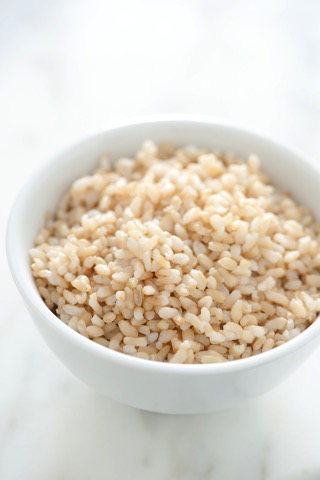
Gluten-free folks accustomed to eating rice-based gluten-free breads, pastas, cereals, and other substitutes may be consuming dangerously high levels of arsenic.
In fact, a 2017 study showed people on a gluten-free diet consuming rice-based products on a regular basis showed almost twice as much arsenic in their urine compared to those who did not (and 70 percent more mercury, another troublesome finding.)
Why arsenic is harmful
Arsenic is a naturally occurring heavy metal. It is the inorganic arsenic (not bound to carbon) that is toxic to humans if levels ingested are too high.
Although inorganic arsenic occurs naturally, it also accumulates in soil and water due to pesticides and fertilizers. Because rice grows in water, it is the grain highest in arsenic.
Consistent exposure to small amounts of arsenic increases the risk of bladder, lung, and skin cancer, as well as heart disease, type 2 diabetes, and neurological disorders. Consuming arsenic during pregnancy may affect the baby’s immune system.
Consumer Reports found one serving of rice pasta, rice cereal, and rice milk exceeded a safe amount of arsenic for one week while one serving of rice cakes came close.
The FDA recently proposed a limit of 100 parts per billion of arsenic in infant rice cereal. However, it’s impossible to know how much arsenic is safe to consume as risk is dose dependent; the more you consume the higher the risk.
How to minimize arsenic exposure from rice
These troubling truths about arsenic exposure through rice don’t have to spell doom for gluten-free folks who depend on rice-based substitutes.
For starters, look for products made from other grains besides rice. Thankfully, there are many more on the market these days.
Look at where your rice comes from. In 2014 Consumer Reports found that rice from Arkansas, Louisiana, or Texas had the highest concentrations of inorganic arsenic while California rice has almost 40 percent less arsenic. Brown basmati rice from California, India, or Pakistan has a third less inorganic arsenic than other brown rices.
Unfortunately, because the arsenic comes from the water, organic rice may not be lower in arsenic.
Eat white rice (sorry!). Since arsenic tends to accumulate in the outer layers that are removed to turn brown rice into white, white rice contains less of the toxin than the whole grain.
Rinse your rice thoroughly and cook in excess water. Wash your rice thoroughly before cooking and then cook your rice in a ratio of about six cups of water to one cup of rice and drain the excess water after. This cuts down arsenic levels by about one third compared to letting rice absorb all the water during cooking.
Consider a grain-free diet. Many people feel and function significantly better on a grain-free diet. If you don’t eat rice-based products, excessive arsenic exposure is one less thing to worry about in a world where we are constantly at battle with toxic chemicals and heavy metals.
Ask my office for more ways to protect yourself from toxic chemicals and heavy metals.



Latest from the Blog
Autoimmune Disease Management with EBOO Therapy
July 17, 2024Autoimmune diseases, characterized by the immune system attacking the body’s own tissues, present significant challenges in treatment and management. Extracorporeal Blood Oxygenation and Ozonation (EBOO) therapy offers a promising adjunctive approach to managing autoimmune conditions. Functioning similarly to a dialysis machine, EBOO filters the blood to remove toxins and pathogens that may trigger autoimmune responses. […] Read more
Latest from the Blog
Detoxification and EBOO Therapy: Optimizing Cellular Health
Detoxification plays a crucial role in maintaining optimal health in today’s toxin-laden environment. Extracorporeal Blood Oxygenation and Ozonation (EBOO) therapy offers a sophisticated approach to detoxifying the bloodstream and enhancing overall well-being. Operating similarly to a blood filtration system, EBOO effectively removes toxins, pesticides, and chemicals that accumulate in the body, supporting the body’s natural […] Read more